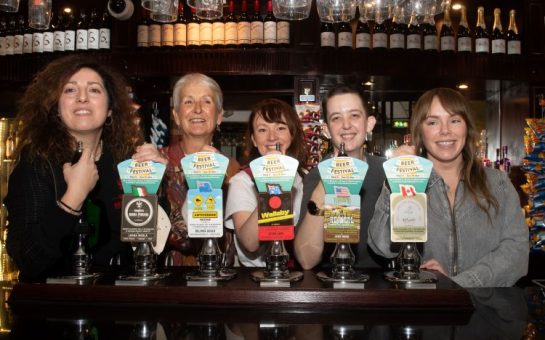Michelle Obama, Margaret Thatcher, a sporting star or a prime time pioneer – who would you choose as the most influential woman in the past 200 years? A Richmond-based historian set out to find out.
Historian and author, Suzannah Liscomb, teamed up with pension providers Scottish Widows to define a list of women that had a major impact in shaping society.
She found younger women surveyed favoured modern figures, such as the current First Lady Michelle Obama, and a stark difference between the sexes of what the success meant to them.
Dr Lipscomb, 36, said: “The top 10 are an impressive list of women – each of them was or has been responsible for or overseen real change, but in addition nearly every one of them has some symbolic importance beyond their own person.
“What’s evident overall is that the women chosen as the top of each category – and in our list of top 10 – are not flashes in the pan.
“Thatcher, Pankhurst, Curie, Earhart, Austen, Dench, Beauvoir and Adie are women who can be referred to by one name. They have been chosen because they were and are game-changers. This is the definition of ‘influential’.”
Margaret Thatcher topped the list followed by Marie Curie and Emmeline Pankhurst came fifth, her popularity recently propelled by the Suffragette film. The Royal family dominated the list demonstrating their influence on the British public.
TOP 10 MOST INFLUENTIAL WOMEN
- Margaret Thatcher (28%)
- Marie Curie (24%)
- Queen Elizabeth II (18%)
- Diana, Princess of Wales (17%)
- Emmeline Pankhurst (16%)
- Mother Teresa (13%)
- Florence Nightingale (12%)
- Queen Victoria (8%)
- Rosa Parks (7%)
- Oprah Winfrey (6%)
Dr Lipscomb has written an array of historical books and she lectures in history as well as presenting TV documentaries.
Scottish Widows began as an Edinburgh coffee house in 1815 in order to aid women left widowed by the Napoleonic war as they had little control over their finances.
Jackie Leiper, retirement expert at Scottish Widows, said: “When Scottish Widows was founded, women were largely excluded from the workforce, couldn’t vote and had no right to own their own property.
“We are proud to reflect on the vast evolution of female empowerment during the past two centuries, brought to life by this list of influential females and the values that people feel give them that prominence.”
The survey reflects the changing face of women in the workforce in the last 200 years, and the increased opportunities that have opened up to women to allow them to enact genuine influence on the societies they live in.
What makes a woman influential was also up for debate – respondents selected key attributes that they thought would make women more likely to succeed.
Three times as many young people plumped for ‘having ambition’ as a key factor, compared to more mature people who decided ‘having compassion’ was more important.
Dr Lipscomb, said: “The difference between older generations choosing ‘compassion’ and younger generations choosing ‘ambition’ is a fascinating and instructive insight into what those setting out in life thinks makes someone influential, and what those with more life experience knows is crucial.
“It suggests that we learn with age that seeking the best for others rather than ambition for self-glorification is the route to real influence.”
The government have acknowledged that more needs to be done to support ambitious women and have already taken measures to encourage and support women setting up their own businesses.
David Cameron intends to close the gender pay gap by enforcing new laws that make it compulsory for all companies with over two hundred and fifty employees to publish the average pay difference between male and female workers.
Picture courtesy of R Barraez D’Lucca, with thanks




